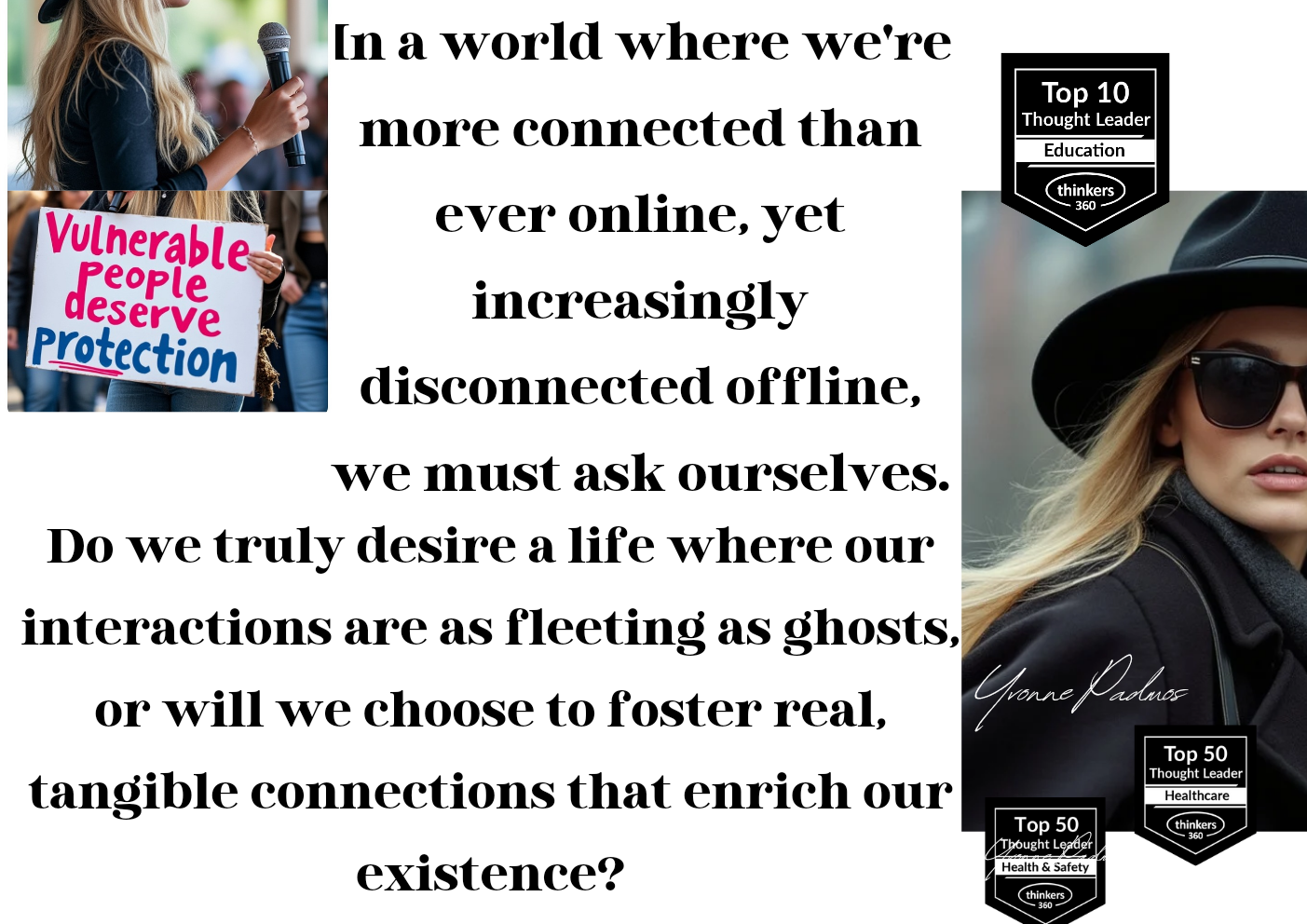Sep07

Where digital interfaces increasingly mediate our interactions, the phenomenon of "ghosting" has transcended its origins in romantic relationships to pervade all facets of social engagement. Ghosting, characterized by the abrupt cessation of communication without any explanation, serves as a mirror reflecting broader societal trends towards disengagement and the avoidance of conflict.
Why This Matters in Education:
- Emotional Intelligence: Our current educational frameworks are predominantly geared towards academic achievement, often neglecting the cultivation of emotional intelligence. The integration of empathy, effective communication, and conflict resolution into educational curricula could significantly mitigate the prevalence of ghosting. By fostering a culture that values respect and understanding, we address the root causes of such behaviors.
- Human Connection: Reimagining education to prioritize human connection over mere information dissemination can transform learning environments into nurturing spaces where every individual feels acknowledged and valued. This shift from silent exits to open dialogues not only promotes mental health but also instills a sense of mutual respect.
- Real-World talents: Life beyond academia demands talents in relationship management, expressing discomfort, and respectfully concluding interactions. Incorporating these into educational programs equips students with the tools to navigate real-world scenarios where ghosting might otherwise seem the path of least resistance.
A Call to Action:
Educators, policymakers, and thought leaders must champion the integration of modules on digital etiquette, emotional literacy, and ethical communication. By doing so, we not only tackle the issue of ghosting but also empower future generations with the skills to engage in human relationships with dignity and compassion.
The Silence of Suffering:
Consider Mera, a woman navigating life with epilepsy and impaired vision, enduring chronic pain from seizures. Her childhood was marked by overprotection, but adulthood presents a stark contrast where she must fend for herself. Mera's plight is not an anomaly; it's a poignant reminder of the chasm between the Universal Declaration of Human Rights and the tangible realities faced by many.
The Universal Declaration of Human Rights:
This foundational document outlines rights that are meant to be universal, yet the practical application often falls short. Mera, despite her legal rights, encounters a world where empathy and support are in short supply, reflecting a systemic failure in our societal structures.
An Emotional Plea:
Envision Jim, now 70, who has dedicated his life to work, only to find himself isolated in his twilight years. His solitude is not merely a consequence of age; it's indicative of a society that often overlooks its elders once they step out of the workforce.
Solutions:
- Educational Reform: Curriculum must evolve to include social-emotional learning, not as an adjunct but as a core component. This reform would address not just ghosting but the broader spectrum of human interaction.
- Awareness Campaigns: Stories like Mera's and Jim's need to be shared not for pity but to ignite empathy and action. These narratives serve as powerful tools for education and societal change.
- Community Engagement: Encouraging real-world interactions beyond the digital realm is crucial. Mera, despite her vibrant social nature, finds herself constrained by survival needs, questioning the essence of her existence.
The Power of Now:
I've witnessed countless instances where the lack of empathy in hospitals, social services, and even local supermarkets has left individuals feeling devalued. The impatience shown towards elderly people counting their money or the neglect of those in pain, parked in wheelchairs facing a wall, is not merely a system failure but a human one.
We are often too hurried to truly see who is with us in the present moment. Imagine yourself in another's shoes. We might not achieve perfection, but we can certainly improve our behaviors and systems. The power of now lies in our immediate actions, in our willingness to change instantly rather than waiting for systemic reforms.
Systems take time to evolve, but the people within them can change in an instant. This is where true progress begins—not in protocols or procedures, but in the hearts of individuals who choose to embrace humanity. Let's not just wait for change; let's be the change, recognizing that every interaction is an opportunity to make a difference.
Keywords: Education, Healthcare, Leadership
 Lateral Moves: The Most Overlooked Succession Strategy in Companies
Lateral Moves: The Most Overlooked Succession Strategy in Companies The Asset Play: Timing, Structure & Global Arbitrage
The Asset Play: Timing, Structure & Global Arbitrage  The Orchestra Needs a Conductor: Why Multi-Model Agents Require H2E Governance
The Orchestra Needs a Conductor: Why Multi-Model Agents Require H2E Governance The Role of Memory in Modern-day Business
The Role of Memory in Modern-day Business The Architectures of Permanence: A Comparative Analysis of the "Big Three" AI Strategies (2026)
The Architectures of Permanence: A Comparative Analysis of the "Big Three" AI Strategies (2026)